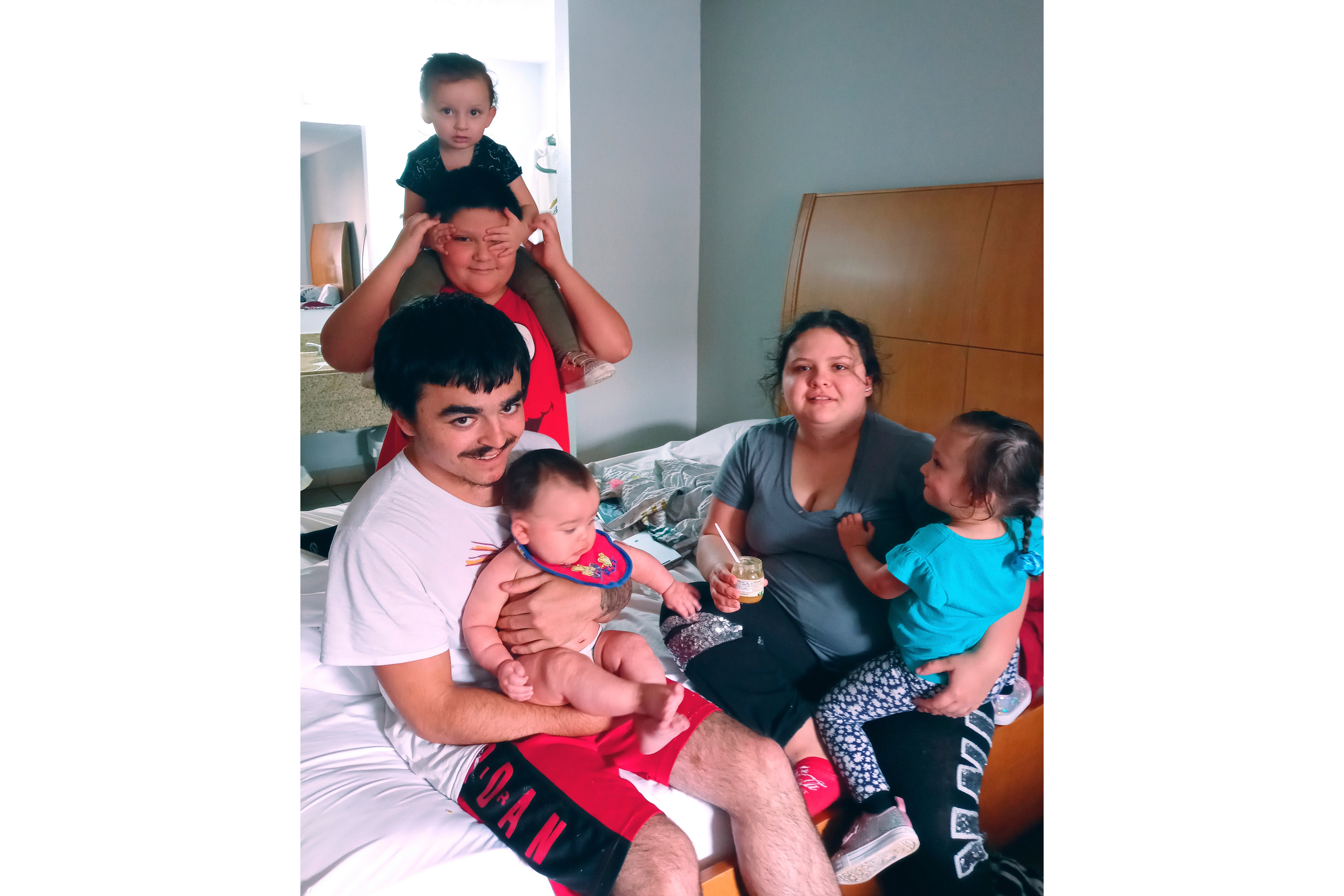Displaced by Ida: Low on funds, family of 7 looks for refuge
For Shelly Savoie, time is running out at the Motel 6 in Bossier City, Louisiana

For Shelly Savoie, time is running out at the Motel 6 in Bossier City, Louisiana So are diapers and dollars.
Savoie and her family of six fled their home in a New Orleans suburb on the West Bank of the Mississippi river as powerful Hurricane Ida hit the region, knocking out power for thousands, destroying homes and flooding streets. But the immediate relief she felt at having been able to escape the storm's destruction has given way to numerous anxieties.
Savoie's biggest concern is that she will run out of money. She thought she would only have to stay in a hotel for about three nights. Now she's discovered that widespread power outages across the state — including in Jefferson Parish, where she lives — might not be resolved for weeks. She also found out that the ceiling of her home partially caved in when Ida passed through and that tree limbs fell on the house and across her yard.
“I’m on edge, definitely,” Savoie told The Associated Press on Monday in Facebook messages written during a break from making calls to the Red Cross. “I’m trying to stay calm, especially around the kids."
It's not easy. Savoie is afraid she could lose her job: The phone agent for two major retail stores left her computer at home when she rushed out with her 2-year-old twin daughters; her 11-year-old son; her 17-year-old daughter and the daughter's 18-year-old boyfriend; and the young couple's 6-month-old son.
“If I’m unable to work after so long, they let you go,” she said.
While displaced, Savoie's 17-year-old, Ressa, is missing school, where she is studying forensic science. Ressa's boyfriend, Timothy, is also missing school, where he is working to get his HVAC license, as well as his job working nights at a supermarket.
Thousands of people with the resources to do so fled before Ida — one of the most powerful hurricanes ever to strike the U.S. — roared ashore in Louisiana on Sunday. But many without the funds for gas or a hotel room were left behind.
Savoie, 39, said she tried to plan ahead to get herself, the babies and the three teenagers out of harm's way. She booked a room at Motel 6 three days ahead of time, and they all loaded into her small SUV on Saturday with just a few outfits apiece and some cash, "thinking we would return quickly after.”
With limited resources, staying at a hotel for much longer is not really an option. Savoie said she's also going to run out of diapers soon.
Savoie said she applied for assistance for her family through the Federal Emergency Management Agency on Monday, but had not heard back. She was able to finally get through to the Red Cross after multiple calls and an hour on hold, but was told the agency could only help her if she made it to a shelter.
Staying at a shelter is something Savoie is trying desperately to avoid at a time when the delta variant of the coronavirus is raging through Louisiana, a state with one of the highest rates of new virus cases per capita and one of the lowest vaccination rates in the U.S.
“Shelters are not COVID-safe,” she said. “I’d rather sleep in my car.”
___
Leah Willingham is a corps member for the Associated Press/Report for America Statehouse News Initiative. Report for America is a nonprofit national service program that places journalists in local newsrooms to report on undercovered issues.